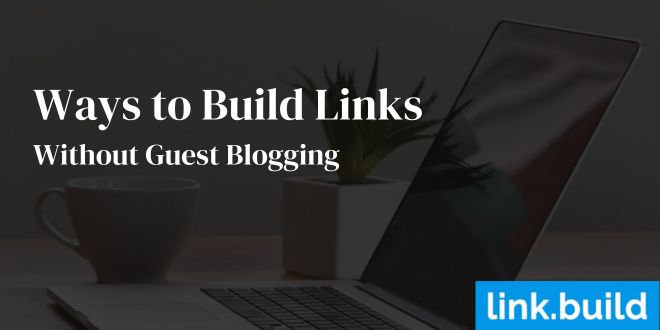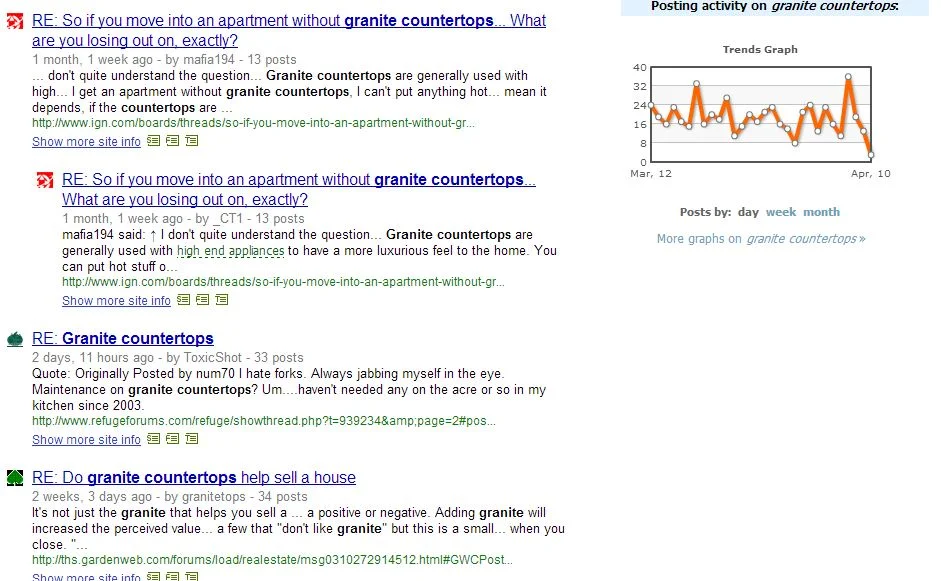8 Ways to Build Links Without Guest Blogging

Guest blogging is a great strategy for many businesses, but it isn’t for everyone. There are some niches that are hard to write for, or the market for guest blogs just isn’t available.
Fortunately, there are other link building strategies that can help you drive traffic to your website aside from guest posts.
These strategies focus on not only getting inbound links, but also promoting your business and building the credibility of your brand, products, and services.
1. Repurpose Existing Content
If you’re like many other companies, you may already have a wealth of high quality content available on your website; you can leverage it to attract inbound links. Survey your existing content, such as blog posts or free resources like e-books and white papers, and promote them via your social media channels. Monthly newsletters or email campaigns work great as well.
Next, repurpose your content. If you’ve got some great blog posts in text format, think about how you could convey the information via other media like images or video. Can you turn the blog post into an infographic? Can you create a video which demonstrates a walk-through of whatever was discussed in the blog article? How about a PDF or Powerpoint slide presentation?
Once you’ve got a plan for how to repurpose your content via other media types, begin to syndicate it through appropriate channels. If you created an infographic, submit it to as many infographic aggregator websites as you can find (Visual.ly is a great place to start). If you created a video, submit it to Youtube. And if you created a PDF or a Powerpoint slide deck, submit it to SlideShare. Your goal should be to extend the reach of your content in order to get it in front of the people that will benefit from it. When people find quality content, they love to link to it.
2. Get Active in Social Media
While most social media links are nofollow, it still helps to promote your content via Facebook, Linkedin, Twitter, Google+, and more. Social media channels are indexed by search engines, so your content can still be found by users performing searches within Google.
To enhance the Search engine Optimization performance of your own website, it's beneficial to build backlinks from other websites, particularly if they attracts organic backlinks as these contribute positively to search engine rankings.
Futhermore, promoting your content via social media platforms helps get it in front of a wider target audience, increasing the likelihood it’ll be found and shared (and linked to) by other bloggers, writers, authors, and webmasters.
When sharing valuable content on Google+ by using the “add link” feature on a status instead of simply posting the URL in the text field, Google search makes the link a dofollow.
Pinterest is a great social media platform for e-commerce sites to market their products, as long as the products are visually appealing. Each product image should directly link to the product page in order to make it easy to purchase the item.
3. Host Contests & Offer Badges
As part of your social media marketing strategy for building backlinks, host contests, trivias, and other engaging activities that give your audience a chance to connect with your brand. This will foster brand loyalty and lead to word-of-mouth referrals, while also leading to inbound links as bloggers talk about the cool swag they won from one of your contests.
You can also allow winners to display badges on their own sites for various reasons. For example, I recently had a post I wrote on Search Engine Journal that was one of the top 10 most-visited posts for that month. SEJ offered me a badge to display on my website as a result, which I proudly did. This badge linked back to SEJ, so they got their link, and I gained valuable backlinks while displaying a nice accomplishment on my site.
Do you have any other tactics or strategies, especially related to resource link building or gaining backlinks from a single blog post, that I missed? Let me know in the comments!
4. Create Link-worthy Content (Linkbait)
Post content on your website that can by described by one or more of the following adjectives, and it will be more likely to attract links:
- Awe-inspiring
- Funny
- Stunning
- Cute
- Happy
- Useful
If your content evokes emotion from the reader, they’re much more likely to take action. This action could be writing a response in which they link to you, or simply tweeting the article to their followers. Either way, you get social media connections buzz and/or inbound links.
This very article is intended to be linkbait; can you tell which of the adjectives I’m going for? I want this article to be useful. So if you found it useful, please do link back to it!
Linkbait isn’t limited to text; infographics are a fantastic way to attract inbound links, as they are easily syndicated and picked up by other bloggers. Every time it’s picked up, it should include a link back to you. Be sure to configure your embed code properly to ensure this happens.
Most importantly, don’t forget to update your blog regularly. One or two infographics isn’t going to cut it; you need a consistent flow of content to establish credibility, authority, recognition, and inbound links.
5. Get Listed with Professional Organization Websites
If your company belongs to any local professional organizations, such as the city chamber of commerce, Toastmasters, or networking groups, many have membership directories that include the member’s company information and website URL.
Besides a link back to your website, these entries also give you the opportunity to share more about your business, products, and services.
6. Get Listed in Directories
Getting listed in directories is a link building strategy that’s been around for a long time. While it doesn’t hold as much weight as it used to, it is still worth submitting your company’s website to local and niche directories. Not only will this result in inbound links, but it’ll also boost your local search rankings.
Local business directories are usually available for major metropolitan areas, some even down to the specific niche, like contracting or clothing stores. GetListed.org and Yext.com are two tools that make it easy to see whether your business is listed in the major directories, and take action to get listed if your business isn’t.
7. Sponsor Events and Fundraisers
Depending on how involved your company is in the community, there may be opportunities for getting inbound links when sponsoring a non-profit fundraiser, local event, or regular business networking event. If your company is involved with or sponsoring any type of event, make sure your company’s logo and website URL are linked on the organization or event’s website. Many organizations list this as a benefit of sponsorship, so take advantage.
Other websites that also list companies regularly (or on a permanent basis, depending on the relationship), are sites that take sponsors. Many popular bloggers offer a monthly round-up of advertisers, with high quality backlinks to their websites. This is in addition to their banner ad that is displayed on the site. In many cases, working directly with the blogger or website owner can yield a better deal and more exposure than trying to start a banner ad campaign on Google Adwords, especially if the website is in your company’s industry.
8. Participate in Forums Q&A Websites
These are also classic link building strategies. When done correctly, they can yield links back to your company’s website, while also providing a helpful service and gaining more exposure for your personal brand.
Q&A websites include Yahoo Answers, Quora, Answers.com, and more. When it comes to forum participation, you can either regularly monitor niche message boards and forums or use a discussion search engines like Omgili or Boardreader to find threads in which your brand, niche, product, or service is being discussed.
By searching for keywords related to products and services, you can find threads to comment on. For instance, if a contractor searched for “granite countertops” they could find threads on customers needing help or looking to purchase new countertops. This results in an opportunity to offer a company blog post link that answers the poster’s question.

boardtalker screenshot taken 4/10/2013
Posters can include their company URL in their profile or post signature, but may also link to a specific page on their website if it directly relates to the question or discussion in general. Because so many forums and message boards are filled with individuals spamming readers about their business, be sure to remain professional and only plug your website when it benefits the original poster and other readers of the site.
Conclusion
Even though broken link building is my favorite and most recommended form of generating backlinks without guest posting, there are some situations where it just won’t work for website owners. In these cases, I hope you find these tips useful for promoting your business and attracting inbound links.
For best results, use a combination of several different link building strategies, including fixing broken links. Always remember to add value, be natural, and be sincere, and you’ll be well on your way to conquering the search engine rankings without relying solely on guest posts.
Do you have any other tactics or strategies, especially related to broken link building, that I missed? Let me know in the comments!


.svg)


.jpg)
.jpg)